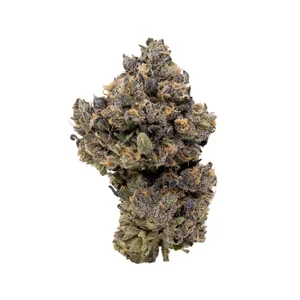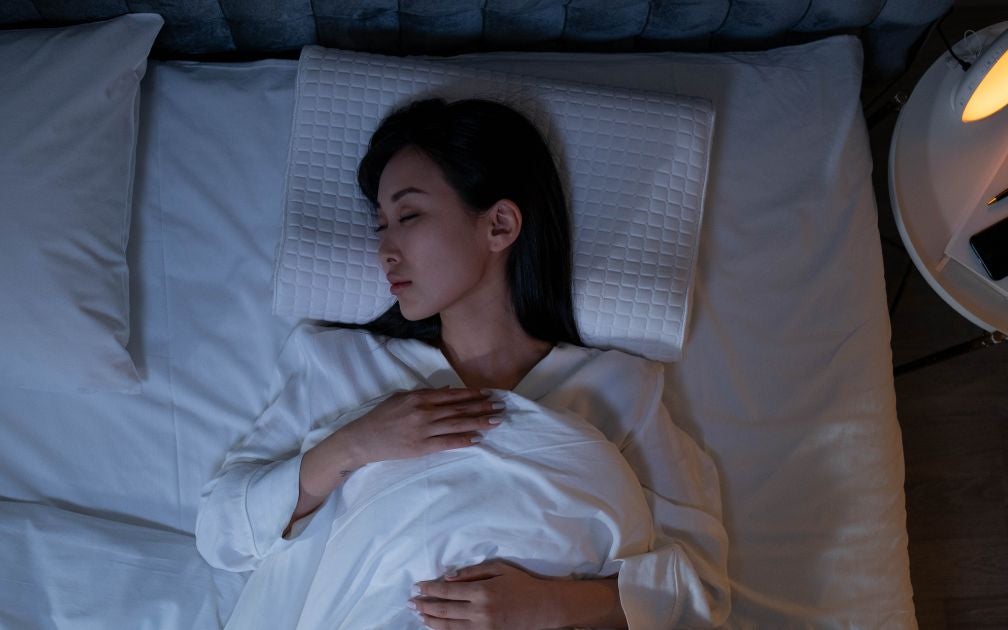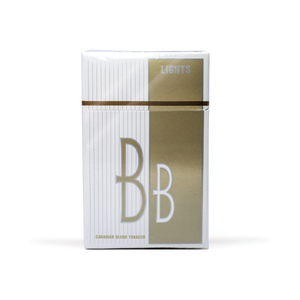Table of Contents
- Understanding Sleep Disorders
- Cannabis for Sleep: Mechanisms and Effects
- Benefits of Cannabis for Sleep
- Considerations and Potential Risks
- Choosing the Right Cannabis Products for Sleep
- Tips for Safe and Effective Use
- Conclusion
- FAQ’s
Are you tired of tossing and turning all night? If so, you may have wondered about the benefits of cannabis for sleep. This blog takes a closer look at cannabis as a natural solution to promote restful nights. From exploring different strains and consumption methods to expert tips and insights, we’ll unravel the potential of cannabis to transform your sleep quality.
Understanding Sleep Disorders
Before we explore the realm of cannabis and sleep, let’s first understand sleep disorders. Sleep disorders encompass a range of conditions, such as insomnia and sleep apnea that disrupt our ability to achieve restorative sleep. These disorders affect a significant portion of the population and can have a profound impact on individuals’ daily lives. Sleep deprivation not only impairs cognitive function and memory but also increases the risk of developing physical and mental health issues.
Cannabis for Sleep: Mechanisms and Effects
To comprehend how cannabis can influence sleep, we must familiarize ourselves with the endocannabinoid system. This intricate network of receptors and neurotransmitters plays a crucial role in regulating sleep. By interacting with these receptors, cannabinoids, including THC and CBD, can influence our sleep patterns.
Research has shown that THC, the psychoactive compound in cannabis, may reduce the time it takes to fall asleep, increase overall sleep duration, and improve sleep quality. However, it’s important to note that high THC levels may also lead to grogginess and memory impairment the following day.
On the other hand, CBD, a non-intoxicating compound, may have a more subtle impact on sleep. It is believed to address the root causes of sleep disorders, such as anxiety and pain, rather than directly promoting sleep. By alleviating these underlying issues, CBD may indirectly improve sleep quality and reduce sleep disturbances.
While scientific studies provide valuable insights, individual experiences are equally important. Many people report positive subjective effects of using cannabis for sleep, with some finding it particularly helpful in managing chronic insomnia. However, it’s crucial to recognize that everyone’s response to cannabis can vary, and finding the right strain and dosage is a highly personal process.
Benefits of Cannabis for Sleep
Cannabis appears to improve sleep in certain cases. Potential benefits are outlined below.
Alleviation of Insomnia Symptoms
Insomnia, a common sleep disorder, can significantly impact one’s ability to fall asleep or stay asleep throughout the night. Cannabis, particularly strains high in THC, has been found to help alleviate insomnia symptoms. By reducing the time it takes to fall asleep and improving sleep continuity, cannabis can potentially provide relief to those struggling with insomnia, especially when depression is a factor.
Potential Reduction in Sleep Disturbances
Sleep disturbances related to pain, anxiety, and post-traumatic stress disorder (PTSD) can disrupt the sleep-wake cycle and prevent restful sleep. Cannabis, through its analgesic and anxiolytic properties, may help reduce these sleep disturbances. By addressing the underlying causes of pain, anxiety, and PTSD, cannabis can create a more conducive environment for quality sleep.
Enhanced Relaxation and Stress Reduction
One of the well-known effects of cannabis is its ability to induce relaxation and reduce stress. This can be particularly beneficial for individuals who struggle with racing thoughts or heightened stress levels that interfere with sleep. By promoting a sense of calm and tranquillity, cannabis can help prepare the mind and body for a restful night’s sleep.
Promotion of Deeper, More Restorative Sleep Cycles
Deep sleep, also known as slow-wave sleep, is essential for the body’s restorative processes. Cannabis has shown the potential to promote deeper and more prolonged periods of deep sleep. This can contribute to enhanced physical recovery, improved immune function, and increased cognitive performance during wakefulness.
Considerations and Potential Risks
While cannabis shows promise as a sleep aid, it’s crucial to consider certain factors and potential risks associated with its use. These considerations include:
Legal Status and Regulations
The legal status of cannabis varies across jurisdictions. Before considering cannabis for sleep, it’s important to familiarize yourself with the laws and regulations in your area. Ensure that you comply with local legislation and obtain cannabis from legal and reputable sources.
Individual Variations in Response and Tolerance
Each individual may have a unique response to cannabis due to factors such as body chemistry, metabolism, and previous cannabis experience. Tolerance levels can also vary, meaning that the same dose may have different effects on different individuals. Start with a low dose and observe how your body responds, gradually adjusting as necessary.
Potential Side Effects
Like any substance, cannabis can have potential side effects. These can include dry mouth, increased appetite, temporary memory impairment, dizziness, and in some cases, anxiety or paranoia. It’s important to be aware of these possibilities and monitor your body’s response. If you experience persistent or severe side effects, discontinue use and consult a healthcare professional.
Interactions with Other Medications and Substances
Cannabis can interact with certain medications, including sedatives, antidepressants, and anticoagulants. It’s crucial to consult with a healthcare professional or pharmacist before using cannabis for sleep, especially if you are taking any other medications. They can provide guidance on potential interactions and help ensure your safety.
Importance of Discussing Cannabis Use with a Healthcare Professional
If you are considering using cannabis for sleep, it is advisable to discuss it with a healthcare professional who is knowledgeable about cannabis therapeutics. They can provide personalized advice based on your specific circumstances, medical history, and any existing sleep disorders or conditions. This professional guidance can help ensure that cannabis use for sleep aligns with your overall health goals and minimizes potential risks.
Choosing the Right Cannabis Products for Sleep
When selecting cannabis products for sleep, it’s important to consider the following factors:
Overview of Different Cannabis Strains
Cannabis strains contain different combinations of cannabinoids, each with its own potential effects on sleep. Indica strains are often associated with relaxation and sedation, making them popular choices for sleep. Sativa strains, on the other hand, may have more uplifting and energizing effects, which may not be ideal for sleep. Hybrid strains offer a balance between the two.
-
 15% OFF
15% OFFHoot Cannabis – Garlic Breath
$125.00$106.25 Select options -

Hoot Cannabis – Grape Runtz
$110.00 Select options -

Frost Factory – Cold Cured Premium Pre-Rolls
$115.00 Select options -
 ❄15% OFF
❄15% OFF
FROST FACTORY!Frost Factory – Cold Cured Quads (14g)
$115.00 Select options -
 25% OFF
25% OFFMerry Jane – Gas Truffles
$6.00 – $110.00$4.50 – $82.50 Select options
Considerations when Selecting THC or CBD Dominant Products
THC-dominant products tend to have stronger sedative effects and may be more effective in promoting sleep. However, they may also come with more pronounced psychoactive effects. CBD-dominant products, on the other hand, offer more subtle effects and may be beneficial for addressing underlying issues such as anxiety or pain that contribute to sleep disturbances.
Various Consumption Methods
Cannabis can be consumed through different methods, including smoking, vaping, edibles, oils, and tinctures. Each method has its own onset time, duration of effects, and potential impact on sleep. Smoking and vaping tend to have quicker onset times but shorter durations. Edibles and oils, on the other hand, have slower onset times but longer durations. Consider your preferences and desired timing of effects when choosing a consumption method.
Dosage Guidelines and Titration
Finding the right dosage is crucial for the safe and effective use of cannabis for sleep. Start with a low dose and gradually increase as needed, taking note of how your body responds. It’s recommended to use the lowest effective dose to minimize potential side effects and tolerance development. Titration allows you to find the optimal dose that provides the desired sleep benefits without undesirable effects.
Tips for Safe and Effective Use
To ensure safe and effective use of cannabis for sleep, consider the following tips:
Start Low and Go Slow
Begin with a low dose of cannabis and gradually increase as necessary. This allows you to gauge your body’s response and find the optimal dose for your sleep needs. It also helps minimize the potential for overwhelming effects or undesirable side effects.
Establish a Consistent Sleep Routine
Incorporate cannabis use as part of a consistent sleep routine. Create a relaxing bedtime routine that promotes good sleep hygiene, such as maintaining a regular sleep schedule, creating a calming sleep environment, and practicing relaxation techniques. By incorporating cannabis into a structured sleep routine, you can optimize its effects on your sleep quality.
Responsible Sourcing of Cannabis Products and Ensuring Quality
When using cannabis for sleep, it’s essential to obtain products from reputable sources that adhere to quality standards. Look for products that have undergone rigorous testing for potency, purity, and contaminants. Responsible sourcing ensures that you’re consuming safe and reliable cannabis products for sleep.
Potential Alternatives to Cannabis for Sleep Improvement
While cannabis can be beneficial for sleep, it’s important to explore other non-pharmacological approaches as well. These may include cognitive-behavioural therapy for insomnia (CBT-I), relaxation techniques, and lifestyle modifications. Incorporating these alternatives alongside or as an alternative to cannabis can provide a holistic approach to sleep improvement.
Conclusion
In the realm of sleep, cannabis emerges as a potential ally, offering relief from insomnia, reducing sleep disturbances, and enhancing relaxation and sleep quality. However, its use requires caution and consideration, taking into account individual responses, potential risks, legalities, and medication interactions. Seeking guidance from healthcare professionals is crucial to navigate this path. Remember that cannabis is not a cure-all, but rather a piece of the puzzle in achieving restful sleep. Embrace non-pharmacological strategies, establish a consistent sleep routine, and stay informed about the latest research. With knowledge, caution, and open communication, you can unlock the potential benefits of cannabis as a sleep aid, weaving it into the tapestry of your sleep journey.
FAQs About Cannabis for Sleep
What are the benefits of cannabis oil for sleep?
Cannabis oil has shown potential benefits for sleep by promoting relaxation, reducing insomnia symptoms, and improving sleep quality. It may help alleviate anxiety, pain, and other factors that can disrupt sleep.
How much cannabis oil should I take for sleep?
The appropriate dosage of cannabis oil for sleep varies depending on factors such as individual tolerance, the concentration of cannabinoids, and desired effects. It is recommended to start with a low dose and gradually increase until the desired sleep improvement is achieved.
Do cannabis edibles help you sleep better?
Cannabis edibles can potentially help improve sleep due to their longer-lasting effects. However, it’s important to consider factors such as dosage, onset time, and personal response. Edibles should be consumed responsibly and in accordance with recommended guidelines.
What are the side effects of CBD sleep gummies?
CBD sleep gummies generally have few side effects, as CBD is non-intoxicating. However, some individuals may experience mild side effects such as drowsiness, dry mouth, or changes in appetite. It’s advisable to start with a low dose and monitor how your body responds to the gummies.






